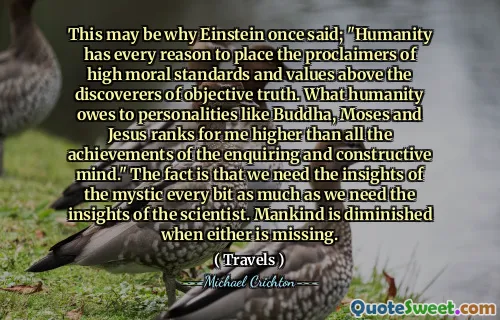
That's what drives science though: trying to find out the way things are, the way they were, and the way it really works. If that is your goal, then you want to make sure that your information is accurate, and if it's not, then it doesn't matter how much you liked that old urban legend or fictional factoid you once bought into. You will discard it, and be embarrassed by it, seeking instead for truth.
The essence of scientific pursuit lies in an unwavering commitment to uncovering objective truths about the universe. This quote eloquently captures the fundamental principle that science advances through constant questioning, testing, and refining our understanding, regardless of preconceived notions or long-held beliefs. Embracing accuracy over comfort means acknowledging when data contradicts our expectations or beliefs, even if it causes discomfort or embarrassment. Such humility is vital because it keeps us honest and open to discovering new truths rather than clinging to falsehoods or outdated myths. In today's world, where misinformation can spread rapidly, this mindset is more crucial than ever. The pursuit of truth demands a rigorous approach—one that values empirical evidence above anecdotal or fictional accounts. The willingness to discard cherished but unsupported beliefs ensures scientific integrity and progress. It also serves as a reminder that knowledge is provisional, refined continually as new evidence emerges. This attitude fosters curiosity, resilience, and a respect for truth that transcends personal bias or cultural narratives. Ultimately, scientific progress hinges on our collective ability to prioritize accuracy and be willing to correct course in light of new, better information. It reminds us that the goal is not to confirm what we wish to believe but to understand reality as accurately as possible, however challenging that may be.











